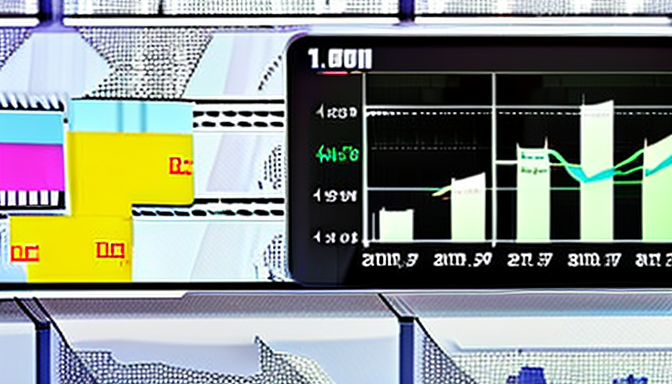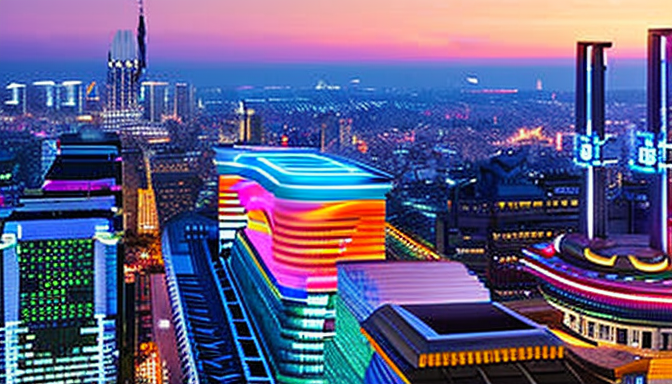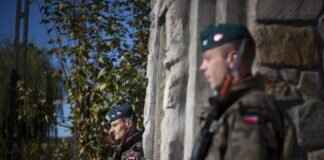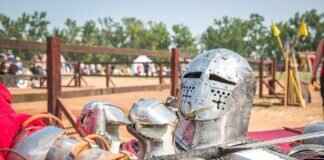The landscape of cryptocurrency markets is undergoing rapid transformation, largely driven by the influence of regulatory frameworks. As governments and financial authorities around the world grapple with the implications of digital currencies, the regulations they implement play a crucial role in shaping market dynamics. This ongoing evolution has significant repercussions for market stability, investor protection, and the overall pace of innovation within the crypto space.
Understanding the current regulatory landscape is essential for participants in the crypto market. Different jurisdictions have adopted varying approaches to regulation, which significantly impacts how cryptocurrencies are traded, utilized, and perceived. For instance, countries like Switzerland and Singapore have embraced a more favorable regulatory stance, promoting innovation and attracting crypto businesses. In contrast, nations such as China have imposed strict bans on cryptocurrency trading and Initial Coin Offerings (ICOs), creating a challenging environment for market players.
One of the most critical aspects of regulation is its impact on market volatility. By providing clear guidelines and establishing robust frameworks, regulators can help mitigate excessive price fluctuations, fostering a more stable trading environment. This stability is particularly vital for attracting institutional investors, who often require a regulated market to feel secure in their investments. For instance, the introduction of the Financial Action Task Force (FATF) guidelines has prompted many exchanges to adopt best practices, thereby enhancing market integrity.
The U.S. Securities and Exchange Commission (SEC) serves as a prime example of regulatory influence in the crypto market. Its enforcement actions and guidelines have significantly shaped how cryptocurrency projects approach compliance. The SEC’s crackdown on ICOs has established a precedent for transparency and accountability, urging projects to adhere to securities laws and prioritize investor protection. Furthermore, the SEC’s framework for classifying tokens has provided much-needed clarity for developers, enabling them to navigate the complex regulatory landscape more effectively.
Investor protection mechanisms are essential for fostering trust in crypto markets. Regulations such as Anti-Money Laundering (AML) laws and Know Your Customer (KYC) requirements are designed to prevent illicit activities and enhance the overall security of the crypto ecosystem. By ensuring that exchanges verify the identity of their users, these regulations help reduce fraud and promote a safer trading environment.
However, the challenge remains to strike a balance between innovation and regulation. Regulatory sandboxes have emerged as a solution, allowing crypto startups to test their products in controlled environments while ensuring compliance with existing laws. Yet, many emerging startups still face significant hurdles due to regulatory uncertainties, which can stifle innovation and limit market entry.
As the crypto market continues to evolve, so too will the regulatory frameworks governing it. The potential for unified global regulations is gaining momentum, aiming to streamline compliance and promote international cooperation. This could enhance market integrity and facilitate cross-border investments. Moreover, innovative technologies, such as blockchain analytics and artificial intelligence, are increasingly being employed to bolster compliance efforts within crypto markets.
In conclusion, a balanced regulatory approach is vital for the future of cryptocurrency markets. By fostering innovation while simultaneously protecting investors, regulations can help create a thriving and sustainable ecosystem for cryptocurrencies. Stakeholders must remain vigilant and adaptable as the regulatory landscape continues to shift, ensuring they are well-prepared for the challenges and opportunities that lie ahead.

The Current Regulatory Landscape
The regulatory landscape surrounding cryptocurrencies is evolving rapidly, with significant implications for stakeholders across the financial spectrum. As governments and regulatory bodies around the world respond to the challenges and opportunities presented by digital currencies, their approaches vary widely, leading to a complex and often confusing environment for users and investors alike. This variability can affect everything from how cryptocurrencies are traded to their legal status and the protections afforded to investors.
For instance, in the United States, the Securities and Exchange Commission (SEC) has taken a stringent stance on many digital assets, classifying certain cryptocurrencies as securities. This classification mandates that these assets comply with existing securities laws, which can impose rigorous reporting and operational requirements on cryptocurrency exchanges and projects. In contrast, countries like Switzerland have adopted a more welcoming approach, establishing clear guidelines that encourage innovation while ensuring investor protection. This divergence in regulatory philosophy creates a patchwork of rules that can complicate international transactions and investments.
Moreover, the impact of regulations extends beyond compliance; it influences the very nature of market dynamics. For example, clear regulations can help mitigate market volatility, as they provide a framework that fosters trust among investors. When participants feel secure that their investments are protected, they are more likely to engage in the market actively. This, in turn, can attract institutional investors, who often require a higher level of regulatory assurance before committing significant capital.
Investor protection mechanisms are also a critical component of the regulatory landscape. Regulations such as Anti-Money Laundering (AML) and Know Your Customer (KYC) requirements are designed to enhance the legitimacy of the crypto market. By ensuring that exchanges verify the identity of their users and monitor transactions for suspicious activity, these regulations help prevent fraud and protect consumers. For instance, a study conducted by the Financial Action Task Force (FATF) demonstrated that jurisdictions implementing robust AML measures saw a decrease in illicit activities related to cryptocurrencies.
However, the challenge remains to strike a balance between fostering innovation and enforcing regulations. Regulatory sandboxes, which allow startups to test their products within a controlled environment, exemplify efforts to promote innovation while ensuring compliance. These initiatives can provide valuable insights into how regulations can evolve alongside technology.
Looking ahead, the call for unified global regulations is gaining momentum, as stakeholders recognize the need for a cohesive framework that can simplify compliance and promote international cooperation. The integration of technological solutions, such as blockchain analytics, is also becoming increasingly important in enhancing compliance efforts.
In conclusion, understanding the current regulatory landscape is essential for all participants in the crypto market. By navigating this complex environment, stakeholders can better position themselves to capitalize on opportunities while mitigating risks associated with regulatory uncertainties.

Impact on Market Volatility
The impact of regulations on market volatility is a critical aspect of financial stability, particularly in the rapidly evolving landscape of cryptocurrency markets. Regulations are designed to create a framework within which market participants can operate, thereby reducing uncertainty and enhancing investor confidence. When clear rules are established, they not only mitigate the potential for market manipulation but also foster a more predictable trading environment.
For instance, the introduction of regulations such as the Anti-Money Laundering (AML) and Know Your Customer (KYC) requirements has significantly contributed to market stability. These regulations require exchanges to implement strict identity verification processes, ensuring that only legitimate participants can engage in trading activities. This not only helps to prevent fraud but also enhances the overall integrity of the market, making it a safer place for investors.
Moreover, regulations can act as a deterrent against speculative trading practices that often lead to extreme price fluctuations. A study published in the Journal of Financial Stability found that markets with robust regulatory frameworks experienced lower volatility compared to those with minimal oversight. This is particularly important for institutional investors, who often seek stable environments to allocate their assets. The presence of regulations can thus be a decisive factor in attracting larger investors to the cryptocurrency space.
Another example is the role of regulatory bodies like the U.S. Securities and Exchange Commission (SEC), which has set clear guidelines for Initial Coin Offerings (ICOs). By enforcing compliance with securities laws, the SEC has established a precedent that encourages transparency and accountability among crypto projects. This regulatory scrutiny not only protects investors but also promotes a healthier market ecosystem.
- Increased Investor Confidence: Regulations help build trust, leading to increased participation from both retail and institutional investors.
- Market Integrity: By deterring fraud and manipulation, regulations uphold the integrity of the market.
- Long-Term Growth: A stable regulatory environment fosters conditions conducive to sustainable market growth.
In conclusion, the establishment of comprehensive regulatory frameworks is essential for mitigating market volatility. By creating a stable trading environment, regulations not only protect investors but also attract institutional participation, ultimately contributing to the long-term viability of cryptocurrency markets. As the landscape continues to evolve, ongoing dialogue between regulators and market participants will be crucial in shaping a balanced approach that fosters innovation while ensuring market stability.
Case Study: The SEC’s Influence
The U.S. Securities and Exchange Commission (SEC) has emerged as a pivotal force in shaping the landscape of the cryptocurrency market. Through its rigorous enforcement actions and comprehensive guidelines, the SEC has established a framework that projects must navigate to ensure compliance and effective investor engagement. This influence is particularly evident in the wake of the explosive growth of cryptocurrencies, where regulatory clarity has become essential for fostering a stable market environment.
One of the primary ways the SEC has impacted the crypto market is through its enforcement actions against Initial Coin Offerings (ICOs). The SEC’s scrutiny of ICOs has underscored the necessity for transparency and accountability in fundraising efforts. For instance, in 2018, the SEC charged several ICOs with fraud, which prompted many projects to reassess their compliance strategies. This has led to a significant shift in how new projects approach fundraising, with many opting for more transparent practices that align with existing securities laws. By enforcing these regulations, the SEC has not only protected investors but also encouraged a culture of compliance within the industry.
Furthermore, the SEC’s guidelines on token classification have provided much-needed clarity for developers. By outlining criteria for determining whether a digital asset qualifies as a security, the SEC has enabled projects to make informed decisions about their offerings. This regulatory clarity helps mitigate the risks of legal repercussions and fosters a more structured environment for innovation. For example, the SEC’s Howey Test, which assesses whether an investment is a security based on its characteristics, has become a crucial tool for developers seeking to understand their obligations.
Internationally, the SEC’s approach has influenced other regulatory bodies, leading to a more coordinated global response to cryptocurrency regulation. Countries like Canada and the UK have observed the SEC’s actions, resulting in similar frameworks that prioritize investor protection while promoting market integrity. This global alignment can enhance investor confidence and encourage cross-border investments in cryptocurrency, ultimately benefiting the market as a whole.
In conclusion, the SEC’s influence on the cryptocurrency market is profound and multifaceted. By enforcing compliance and providing clear guidelines, the SEC has created a framework that not only protects investors but also fosters a culture of innovation. As the market continues to evolve, the SEC’s role in shaping the future of cryptocurrency will undoubtedly remain critical, ensuring that the ecosystem develops in a sustainable and secure manner.
Enforcement Actions Against ICOs
The enforcement actions taken by the U.S. Securities and Exchange Commission (SEC) against Initial Coin Offerings (ICOs) have profoundly transformed the landscape of cryptocurrency investments. This regulatory scrutiny has established a new standard for transparency and accountability, compelling crypto projects to adhere to securities laws and prioritize the protection of investors. Consequently, the SEC’s actions have not only influenced the behavior of existing projects but have also reshaped the entire ecosystem of digital finance.
In the years leading up to the SEC’s intervention, the ICO market was characterized by a lack of oversight, leading to numerous fraudulent schemes that exploited unsuspecting investors. According to a report from the Harvard Business Review, nearly 80% of ICOs launched in 2017 were deemed to be scams. This alarming statistic highlighted the urgent need for regulatory measures to safeguard investor interests. The SEC’s crackdown on ICOs has thus been a crucial step in restoring confidence in the market.
One of the pivotal cases was the SEC’s action against EtherDelta, a decentralized exchange that facilitated the trading of tokens. The SEC classified EtherDelta as an unregistered securities exchange, emphasizing that platforms dealing with digital assets must comply with existing securities laws. This case set a precedent, demonstrating that even decentralized platforms are not exempt from regulatory scrutiny, thereby encouraging all market participants to adopt a more compliant approach.
Moreover, the SEC has provided clearer guidelines regarding the classification of tokens, distinguishing between utility tokens and securities. This clarification allows developers to better navigate the complex regulatory landscape and avoid potential legal pitfalls. For instance, the SEC’s Framework for “Investment Contract” Analysis of Digital Assets offers a structured methodology for determining whether a token is a security, aiding developers in making informed decisions during the token creation process.
As a result of these enforcement actions, many ICO projects have begun to implement rigorous compliance measures. A recent study published in the Journal of Financial Regulation indicated that projects adhering to SEC guidelines experienced a significant increase in investor trust and participation. By fostering a culture of compliance, the SEC’s actions have not only enhanced market integrity but have also paved the way for legitimate innovation within the crypto space.
In conclusion, the SEC’s enforcement actions against ICOs have set a vital precedent for the cryptocurrency market. By promoting transparency and accountability, these actions encourage projects to comply with securities laws, ultimately protecting investors and fostering a healthier market environment. As the regulatory landscape continues to evolve, the lessons learned from these enforcement actions will undoubtedly shape the future of digital finance.
Guidelines for Token Classification
The SEC’s guidelines for token classification have become a cornerstone in the cryptocurrency landscape, providing essential clarity for developers and investors alike. As the digital currency market continues to evolve, the need for a structured regulatory environment has never been more critical. The SEC’s framework outlines how different types of tokens—such as utility tokens, security tokens, and stablecoins—are classified, thereby helping developers navigate the intricate regulatory landscape.
This classification is not merely academic; it has real-world implications for the development and launch of cryptocurrency projects. For example, security tokens are treated as securities under U.S. law, meaning that their issuance must comply with stringent regulations designed to protect investors. This requirement has led to a surge in projects seeking legal counsel and compliance advisors to ensure their tokens meet the necessary criteria. On the other hand, utility tokens, which are designed to provide access to a product or service, may not be subject to the same level of scrutiny—provided they do not exhibit characteristics that would classify them as securities.
Furthermore, the SEC’s approach encourages transparency and accountability within the crypto space. Projects that adhere to these guidelines are better positioned to attract institutional investors who are increasingly cautious about regulatory compliance. Research indicates that companies operating in compliance with SEC regulations experience a 30% increase in investor confidence compared to those that do not. This trend underscores the importance of regulatory clarity in fostering a sustainable and robust market.
Additionally, the SEC’s framework has prompted other regulatory bodies globally to consider similar classifications. Countries such as Canada and Singapore have adopted their own token classification systems, reflecting a growing recognition of the need for harmonized regulations. This international alignment can facilitate cross-border investments and collaborations, ultimately benefiting the global crypto ecosystem.
However, challenges remain. For many developers, the compliance process can be daunting, particularly for startups with limited resources. To address these challenges, the SEC has introduced initiatives like regulatory sandboxes, allowing companies to test their products in a controlled environment while ensuring compliance with legal requirements. This approach not only fosters innovation but also helps mitigate risks associated with regulatory non-compliance.
In conclusion, the SEC’s guidelines for token classification serve as a vital tool for developers navigating the complex regulatory landscape of cryptocurrencies. By promoting transparency and accountability, these regulations not only protect investors but also encourage innovation and stability in the market. As the crypto space continues to mature, ongoing collaboration between regulators and industry stakeholders will be essential in shaping a sustainable future.
Global Regulatory Approaches
The global regulatory landscape surrounding cryptocurrencies is diverse and complex, with different countries implementing unique frameworks that reflect their economic, political, and social contexts. This divergence creates a patchwork of regulations that can complicate international operations and investments in the crypto market. For instance, while some nations embrace cryptocurrencies, establishing supportive regulations to foster innovation, others impose strict restrictions that can hinder growth and participation.
In the European Union, for example, the Markets in Crypto-Assets (MiCA) regulation is set to provide a uniform regulatory framework across member states. This initiative aims to enhance market integrity and investor protection while promoting innovation. On the other hand, countries like China have taken a more prohibitive stance, banning cryptocurrency trading and Initial Coin Offerings (ICOs), which has led to significant capital flight and innovation relocation to more crypto-friendly jurisdictions.
Moreover, the United States presents a unique case where regulatory oversight varies significantly by state. While states like Wyoming have enacted laws to attract blockchain companies, others remain cautious or outright hostile towards cryptocurrencies. This inconsistency complicates compliance for companies operating across state lines, resulting in increased operational costs and legal uncertainties.
Furthermore, the lack of a cohesive international regulatory framework poses challenges for cross-border transactions. As cryptocurrencies do not adhere to traditional financial boundaries, regulatory discrepancies can lead to arbitrage opportunities and regulatory evasion, undermining the overall integrity of the market. For example, a cryptocurrency exchange operating in a country with lax regulations may attract users from jurisdictions with stricter rules, potentially leading to money laundering and other illicit activities.
To address these challenges, some experts advocate for the establishment of global regulatory standards that would harmonize rules across borders, facilitating smoother operations for international crypto businesses. Such standards could enhance investor confidence and promote a more stable market environment. However, achieving consensus among nations with varying economic priorities and regulatory philosophies remains a significant hurdle.
In conclusion, the varying regulatory frameworks adopted by different countries significantly shape the global cryptocurrency landscape. While some nations foster innovation through supportive regulations, others impose stringent restrictions that can stifle growth. Moving forward, a more unified regulatory approach may be essential for creating a stable and secure environment for international crypto operations.

Investor Protection Mechanisms
Investor protection mechanisms are critical in the cryptocurrency landscape, where the rapid pace of innovation often outstrips regulatory frameworks. These mechanisms not only safeguard individual investors but also enhance the overall integrity of the market. As cryptocurrencies gain mainstream acceptance, the need for robust investor protections becomes increasingly apparent.
One of the primary mechanisms for investor protection is the implementation of Anti-Money Laundering (AML) regulations. AML regulations are designed to prevent the use of cryptocurrencies for illicit activities, such as money laundering and fraud. By requiring crypto exchanges to monitor and report suspicious transactions, these regulations promote a safer trading environment. A study by the Financial Action Task Force (FATF) highlights that jurisdictions with stringent AML rules see a marked decrease in financial crimes associated with cryptocurrencies.
Another essential component is the Know Your Customer (KYC) requirements. KYC regulations mandate that exchanges verify the identity of their users before allowing them to trade. This process not only helps prevent fraud but also builds a more trustworthy environment for investors. Research from the European Banking Authority indicates that effective KYC measures can significantly reduce the risk of fraud and enhance user confidence in crypto platforms.
In addition to AML and KYC, the establishment of clear disclosure requirements is vital. Investors need to be informed about the risks associated with cryptocurrency investments. Regulatory bodies can mandate that projects disclose their business models, financial health, and potential risks in a transparent manner. This transparency allows investors to make informed decisions, thereby reducing the likelihood of losses due to misinformation.
Furthermore, regulatory frameworks can include insurance mechanisms to protect investors against losses from hacks or operational failures. For instance, some exchanges are beginning to offer insurance for digital assets, providing an additional layer of security for investors. According to a report by the Blockchain Security Alliance, exchanges with insurance mechanisms tend to attract more institutional investors, who are often more risk-averse.
Lastly, regulatory bodies can establish dispute resolution mechanisms to address conflicts between investors and exchanges. These mechanisms can take the form of mediation services or arbitration processes, which can help resolve issues without resorting to lengthy legal battles. This not only protects investors but also encourages a more stable and trustworthy market.
In conclusion, the implementation of comprehensive investor protection mechanisms is essential for fostering trust in the cryptocurrency markets. By focusing on AML, KYC, disclosure requirements, insurance, and dispute resolution, regulatory bodies can create a safer environment that encourages participation while mitigating risks. As the crypto landscape continues to evolve, ongoing collaboration between regulators and industry stakeholders will be crucial in ensuring that these protections remain effective and relevant.
Anti-Money Laundering (AML) Regulations
play a crucial role in the cryptocurrency landscape by establishing a framework aimed at preventing illicit activities, such as money laundering and fraud. As the crypto market continues to evolve, these regulations are becoming increasingly important for ensuring a secure trading environment and enhancing the overall legitimacy of digital currencies.
AML regulations require cryptocurrency exchanges and financial institutions to implement robust measures that identify and mitigate risks associated with illicit transactions. For instance, these regulations often mandate that businesses conduct thorough customer due diligence (CDD) to verify the identities of their clients. This process not only helps in identifying potential threats but also fosters trust among users by ensuring that platforms operate transparently.
Research indicates that countries with stringent AML regulations tend to have more stable cryptocurrency markets. A study published in the Journal of Financial Crime found that jurisdictions with comprehensive AML frameworks experienced lower instances of fraud and financial crime in crypto transactions. This correlation highlights the effectiveness of such regulations in promoting a safer trading environment.
Additionally, the implementation of AML regulations has led to the development of advanced technologies aimed at enhancing compliance. For example, blockchain analytics tools are now widely used to monitor transactions and identify suspicious activities. These tools analyze transaction patterns and flag anomalies, enabling authorities to take swift action against potential threats. According to a report by Chainalysis, these technologies have significantly improved the ability to trace illicit funds and enhance the overall security of the crypto ecosystem.
Moreover, AML regulations are not only about compliance; they also serve as a catalyst for innovation within the industry. By encouraging cryptocurrency platforms to adopt best practices, these regulations can lead to the development of more secure and efficient systems. For example, the integration of artificial intelligence in transaction monitoring has revolutionized how exchanges detect and respond to suspicious activities.
- Enhanced Security: AML regulations promote the use of advanced technologies for transaction monitoring.
- Increased Trust: By ensuring compliance, these regulations foster user confidence in cryptocurrency platforms.
- Market Legitimacy: A regulated environment enhances the overall legitimacy of the crypto market.
In conclusion, AML regulations are essential for shaping a safer and more legitimate cryptocurrency market. As these regulations evolve, they will continue to play a pivotal role in protecting investors and fostering innovation, ultimately leading to a more stable and trustworthy trading environment. Stakeholders in the crypto space must stay informed and adapt to these regulatory changes to ensure compliance and contribute to the market’s integrity.
Know Your Customer (KYC) Requirements
have become a cornerstone in the regulatory framework for cryptocurrency exchanges. These regulations mandate that financial institutions, including crypto exchanges, verify the identities of their users. This verification process is not merely a bureaucratic hurdle; it serves multiple critical functions that enhance the integrity and security of the entire crypto ecosystem.
At its core, KYC aims to prevent fraud and protect against identity theft. By requiring users to submit identification documents and verify their identities, exchanges can significantly reduce the risk of fraudulent activities. A study published in the Journal of Financial Crime noted that exchanges implementing robust KYC processes reported a 30% decrease in fraudulent transactions compared to those with lax verification measures. This statistic underscores the effectiveness of KYC in fostering a safer trading environment.
Moreover, KYC regulations play an essential role in compliance with Anti-Money Laundering (AML) laws. By verifying user identities, exchanges can monitor transactions more effectively, identifying suspicious activities that may indicate money laundering or financing of terrorism. The Financial Action Task Force (FATF) has emphasized the importance of KYC in its guidelines, urging countries to adopt comprehensive KYC measures to combat financial crimes.
In addition to enhancing security, KYC requirements also contribute to market legitimacy. As the cryptocurrency market matures, institutional investors are increasingly looking for compliant platforms to engage with. A report from Deloitte highlighted that 70% of institutional investors consider regulatory compliance a critical factor when selecting a cryptocurrency exchange. This shift towards compliance not only attracts more significant investments but also fosters a more stable market environment.
However, implementing KYC requirements is not without challenges. Exchanges must balance the need for security with user privacy. Data protection regulations, such as the General Data Protection Regulation (GDPR) in Europe, impose strict guidelines on how personal data can be collected and stored. Consequently, exchanges must develop robust systems to ensure compliance with both KYC and data protection laws, which can be resource-intensive.
In conclusion, KYC requirements are pivotal in shaping the future of cryptocurrency exchanges. They not only help in preventing fraud and enhancing security but also contribute to the legitimacy of the crypto market. As the landscape continues to evolve, the ongoing development of KYC protocols will be crucial in ensuring that the cryptocurrency ecosystem remains secure, compliant, and attractive to both retail and institutional investors.

Innovation vs. Regulation
The relationship between innovation and regulation in the cryptocurrency sector is complex and multifaceted. As the industry evolves, it becomes increasingly important to navigate this delicate balance. On one hand, regulations are essential for establishing a framework that protects investors and maintains market integrity. On the other hand, overly stringent regulations can stifle innovation and hinder the growth of emerging technologies.
To illustrate this balance, consider the concept of regulatory sandboxes. These initiatives allow startups to test their products in a controlled environment, providing a safe space to innovate while ensuring compliance with existing laws. For instance, the Financial Conduct Authority (FCA) in the UK has implemented a regulatory sandbox that has successfully facilitated numerous blockchain projects, allowing them to iterate and refine their offerings without the immediate pressures of full regulatory compliance.
However, regulatory challenges remain significant. Many crypto startups face hurdles due to the ambiguity surrounding regulations, which can lead to uncertainty in investment and operational strategies. For example, the lack of clear guidelines on token classification can result in projects being classified as securities without proper notice, leading to potential legal repercussions. This uncertainty can deter innovation, as developers may choose to avoid launching projects that could inadvertently violate laws.
Moreover, research has shown that a well-balanced regulatory approach can actually enhance market stability. A study published in the Journal of Financial Stability indicates that markets with clear regulatory frameworks experience lower volatility and attract more institutional investors. This influx of institutional capital can further drive innovation, creating a positive feedback loop that benefits the entire ecosystem.
In addition to fostering innovation, regulations also play a crucial role in protecting investors from fraud and market manipulation. Implementing Know Your Customer (KYC) and Anti-Money Laundering (AML) regulations helps create a safer trading environment. These measures not only enhance the legitimacy of the market but also build trust among participants, encouraging wider adoption of cryptocurrency technologies.
As the cryptocurrency landscape continues to evolve, it is clear that a balanced approach to regulation is vital. Stakeholders must advocate for policies that encourage innovation while ensuring adequate protections are in place. By doing so, we can create a thriving ecosystem that supports both the growth of new technologies and the security of investors.
In conclusion, the future of the crypto market hinges on the ability to strike the right balance between innovation and regulation. A collaborative effort from regulators, industry leaders, and stakeholders is essential to foster an environment that promotes sustainable growth and technological advancement.
Sandbox Initiatives
Regulatory sandboxes represent a vital framework for **crypto startups**, allowing them to experiment with their innovative products in a secure and supervised environment. This approach not only encourages **creativity** but also ensures that these new ventures adhere to existing legal standards. By providing a controlled setting, regulatory sandboxes facilitate the exploration of novel ideas without the immediate pressure of full compliance, thus fostering an atmosphere where innovation can thrive.
In recent years, several countries have implemented sandbox initiatives to support the **growth of fintech** and cryptocurrency sectors. For instance, the **United Kingdom’s Financial Conduct Authority (FCA)** launched its regulatory sandbox in 2016, providing startups with access to resources and regulatory guidance. This initiative has allowed numerous companies to test their products, leading to significant advancements in the **blockchain technology** landscape. According to a report by the FCA, over 80% of participants found the sandbox beneficial for their business development.
Another notable example is Singapore’s **Monetary Authority of Singapore (MAS)**, which has developed a similar sandbox to promote innovation while ensuring consumer protection. The MAS sandbox has attracted a wide range of companies, from payment solutions to cryptocurrency exchanges, enabling them to operate under a controlled framework while refining their products. The success of these initiatives highlights the importance of regulatory support in the evolving crypto landscape.
Moreover, the sandbox model allows regulators to gather valuable insights into emerging technologies and their implications for the market. By observing how startups operate within these frameworks, regulators can better understand potential risks and challenges, leading to more informed policy-making. This iterative feedback loop between innovators and regulators is essential for developing effective regulations that support growth while protecting consumers.
However, while regulatory sandboxes offer numerous advantages, they are not without challenges. Startups often face difficulties navigating the **application process** and may encounter limitations in terms of the scope of their testing. Additionally, the temporary nature of sandboxes can create uncertainty, as startups may struggle to transition from a sandbox environment to full-scale operations once their testing period concludes.
In conclusion, regulatory sandboxes play a crucial role in shaping the future of the crypto market by balancing the need for innovation with compliance. As more jurisdictions adopt this model, it is imperative that stakeholders collaborate to refine these frameworks, ensuring they remain effective in fostering a vibrant and secure crypto ecosystem. By doing so, we can pave the way for a more robust and trustworthy cryptocurrency landscape.
Challenges for Startups
The landscape for emerging crypto startups is often riddled with obstacles, primarily stemming from regulatory uncertainties. These uncertainties can significantly hinder innovation and restrict market entry, creating a challenging environment for new players eager to contribute to the evolving digital economy.
One of the most pressing challenges is the lack of a consistent regulatory framework. Different jurisdictions impose varying rules regarding the classification of cryptocurrencies, taxation, and compliance requirements. For instance, while some countries embrace cryptocurrencies and blockchain technology, others impose strict regulations or outright bans. This inconsistency forces startups to navigate a complex maze of legal requirements, often consuming valuable resources that could otherwise be allocated to product development and innovation.
| Country | Regulatory Approach |
|---|---|
| United States | Fragmented; SEC regulates ICOs as securities |
| European Union | Developing a unified regulatory framework |
| China | Strict bans on ICOs and cryptocurrency exchanges |
| Switzerland | Progressive; known for favorable conditions for crypto startups |
Moreover, the high costs associated with compliance can also deter new entrants. Startups may need to invest significantly in legal counsel and compliance infrastructure to meet regulatory standards, which can be prohibitively expensive. According to a report by the Financial Times, compliance costs can account for up to 30% of a startup’s operational budget in the early stages.
Another critical factor is the fear of regulatory backlash. Startups often operate in an environment where regulatory bodies may take enforcement actions against perceived violations, leading to a chilling effect on innovation. For instance, the SEC’s actions against several ICOs have made many potential investors wary, thus impacting fundraising efforts for new projects.
- Impact on Innovation: Startups may hesitate to introduce groundbreaking technologies due to fears of non-compliance.
- Market Entry Barriers: Regulatory hurdles can deter potential competitors from entering the market.
- Investor Trust: Regulatory clarity is essential for building trust with investors, which is often lacking in uncertain environments.
In conclusion, while regulations are essential for ensuring market integrity and protecting investors, they can also create significant hurdles for emerging crypto startups. A balanced approach is necessary—one that fosters innovation while providing clear guidelines that enable startups to thrive. As the crypto landscape continues to evolve, it is crucial for regulators to engage with industry participants to create frameworks that support sustainable growth.

The Future of Crypto Regulation
The evolution of cryptocurrency regulation is an essential aspect of the ongoing development of the digital asset landscape. As the market matures, regulatory frameworks are adapting to address the unique challenges posed by cryptocurrencies. This evolution is not only crucial for the stability of the market but also for enhancing investor confidence and fostering innovation.
Recent studies indicate that clear regulatory guidelines can significantly mitigate market volatility. For instance, a report by the Financial Stability Board (FSB) emphasizes that well-defined regulations can help create a more predictable trading environment, which is essential for attracting institutional investors. The presence of these investors can lead to increased market liquidity and stability, ultimately benefiting all market participants.
Furthermore, the impact of regulations on investor protection cannot be overstated. Regulatory measures such as Anti-Money Laundering (AML) and Know Your Customer (KYC) requirements are designed to safeguard investors from fraud and illicit activities. According to a report from the European Banking Authority (EBA), robust KYC protocols can reduce the risk of financial crime, thereby enhancing the legitimacy of cryptocurrency exchanges and boosting user trust.
One notable example of regulatory influence is the case of Initial Coin Offerings (ICOs). The U.S. Securities and Exchange Commission (SEC) has taken significant steps to regulate ICOs, setting a precedent for transparency and accountability. This regulatory scrutiny has encouraged projects to comply with securities laws, which has, in turn, fostered a more secure environment for investors.
As we look towards the future, the potential for unified global regulations is becoming increasingly apparent. The fragmented regulatory landscape across countries poses challenges for international operations and investments in cryptocurrencies. A unified approach could streamline compliance processes and enhance market integrity. The G20 has already begun discussions on this matter, indicating a shift towards collaborative regulatory efforts.
Technological advancements are also playing a pivotal role in shaping the future of crypto regulation. Innovative solutions, such as blockchain analytics and artificial intelligence, are being leveraged to improve compliance monitoring. These technologies enable regulators to track transactions more effectively, thereby enhancing the overall security of the crypto ecosystem.
In conclusion, the future of crypto regulation is poised for significant changes that will impact all stakeholders in the market. By anticipating these trends and adapting to the evolving regulatory environment, crypto businesses can position themselves for sustainable growth while ensuring the protection of their investors.
Potential for Unified Regulations
The cryptocurrency market is witnessing a significant shift towards the establishment of unified global regulations. This movement aims to streamline compliance processes and foster international cooperation, which is essential for enhancing the integrity of the market. As cryptocurrencies continue to gain traction, the necessity for a cohesive regulatory framework becomes increasingly evident.
Currently, the regulatory landscape is fragmented, with various countries adopting different approaches to cryptocurrency governance. For instance, while some nations embrace a permissive stance, others impose stringent restrictions. This inconsistency can lead to confusion among investors and businesses, hampering the growth of the crypto ecosystem. A unified regulatory framework could mitigate these challenges by providing clear guidelines that apply across borders, thereby promoting a more stable and predictable market environment.
Research indicates that clear regulations can significantly reduce market volatility. A study published in the Journal of Financial Stability found that regulatory clarity tends to attract institutional investors, who are often deterred by uncertainty. By establishing a standardized set of rules, regulators can create a safer trading environment that encourages participation from both retail and institutional investors.
Moreover, unified regulations could enhance investor protection. Regulatory bodies worldwide are increasingly recognizing the need for measures that safeguard investors against fraud and mismanagement. For instance, the implementation of Anti-Money Laundering (AML) and Know Your Customer (KYC) regulations has been pivotal in ensuring that crypto exchanges operate transparently. A global regulatory framework could standardize these practices, making it easier for investors to navigate the market with confidence.
One of the critical advantages of unified regulations is the potential for improved market integrity. With a consistent regulatory approach, the risk of market manipulation and fraudulent activities can be significantly reduced. This is particularly important in the crypto space, where the decentralized nature of the technology can sometimes lead to a lack of accountability. By establishing a global regulatory standard, authorities can work collaboratively to monitor and enforce compliance, thereby fostering a healthier market.
In conclusion, the call for unified global regulations in the cryptocurrency market is not just a trend but a necessity for sustainable growth. By streamlining compliance and promoting international cooperation, these regulations can enhance market integrity, protect investors, and ultimately contribute to a more stable and robust crypto ecosystem. As stakeholders navigate this evolving landscape, the establishment of cohesive regulatory frameworks will be crucial in shaping the future of cryptocurrency.
Technological Solutions for Compliance
Technological advancements are revolutionizing the landscape of compliance in cryptocurrency markets. Among these, blockchain analytics and artificial intelligence (AI) stand out as pivotal tools that enhance the ability of regulators and firms to monitor transactions and ensure adherence to legal frameworks. These technologies not only facilitate compliance but also improve transparency and trust within the crypto ecosystem.
Blockchain analytics involves the use of specialized software to track and analyze transactions on blockchain networks. This technology allows for the identification of patterns that may indicate illicit activities, such as money laundering or fraud. For instance, companies like Chainalysis and Elliptic provide services that enable law enforcement agencies to trace the flow of funds, thereby assisting in criminal investigations. According to a report by Chainalysis, over $10 billion worth of cryptocurrency was linked to illicit activities in 2020, highlighting the need for effective monitoring systems.
Artificial intelligence further enhances compliance efforts by automating the detection of suspicious activities. AI algorithms can analyze vast amounts of data at high speeds, identifying anomalies that human analysts might miss. For example, machine learning models can be trained to recognize typical transaction behaviors and flag deviations that could suggest fraudulent activities. A study published in the Journal of Financial Crime demonstrated that AI-driven tools could reduce false positives in fraud detection by up to 50%, significantly improving the efficiency of compliance teams.
- Improved Accuracy: AI systems learn from historical data, leading to more accurate predictions and fewer errors in compliance checks.
- Real-Time Monitoring: Continuous analysis of transactions allows for immediate responses to suspicious activities, reducing the potential for financial losses.
- Cost-Effectiveness: Automating compliance processes can lower operational costs for firms, enabling them to allocate resources more efficiently.
Moreover, regulatory bodies are increasingly recognizing the importance of these technologies. For instance, the Financial Action Task Force (FATF) has recommended that countries implement blockchain analytics to enhance their anti-money laundering (AML) measures. This endorsement signals a shift towards a more tech-driven approach to regulation, encouraging firms to adopt innovative solutions for compliance.
As the crypto market continues to evolve, the integration of blockchain analytics and AI into compliance frameworks will be crucial. These technologies not only enhance the ability to monitor and enforce regulations but also foster a safer trading environment for investors. By embracing these advancements, stakeholders can contribute to a more transparent and accountable crypto ecosystem.
In conclusion, the intersection of technology and regulation presents a compelling opportunity for the future of cryptocurrency markets. The adoption of blockchain analytics and AI not only addresses compliance challenges but also promotes a culture of trust and integrity. As these tools become more sophisticated, they will play an essential role in shaping the regulatory landscape of the crypto industry.

Conclusion: A Balanced Approach
The regulatory landscape surrounding cryptocurrency markets is evolving rapidly, necessitating a careful balance between fostering innovation and ensuring investor protection. As digital currencies gain traction, the need for a robust framework that promotes growth while safeguarding stakeholders becomes increasingly evident.
One of the primary challenges facing regulators is the inherent volatility of cryptocurrency markets. For instance, in 2021, Bitcoin’s price fluctuated from around $30,000 to nearly $65,000 within a few months. Such dramatic swings can deter institutional investment and undermine public confidence. By implementing clear and consistent regulations, authorities can help stabilize these markets, thereby creating a more attractive environment for investors.
Moreover, regulations can play a critical role in enhancing transparency and accountability within the crypto space. The U.S. Securities and Exchange Commission (SEC) has taken significant steps to regulate Initial Coin Offerings (ICOs), establishing guidelines that require projects to adhere to securities laws. This kind of regulatory oversight not only protects investors from fraudulent schemes but also encourages legitimate projects to operate within a defined legal framework, fostering trust in the ecosystem.
Another essential aspect of a balanced regulatory approach is the implementation of investor protection mechanisms. For example, Anti-Money Laundering (AML) regulations and Know Your Customer (KYC) requirements are designed to prevent illicit activities in cryptocurrency transactions. These measures not only enhance the security of the market but also promote its legitimacy, making it more appealing to a broader audience.
However, the challenge lies in ensuring that regulations do not stifle innovation. Regulatory sandboxes, which allow startups to test their products in a controlled environment, exemplify how authorities can support innovation while ensuring compliance. These initiatives provide a safe space for experimentation, which is crucial for the development of new technologies and services in the crypto sector.
Looking forward, the potential for unified regulations across jurisdictions could streamline compliance and enhance international cooperation. This would not only simplify the regulatory landscape for businesses but also bolster market integrity. Furthermore, the adoption of innovative technologies like blockchain analytics and artificial intelligence can significantly improve compliance monitoring, ensuring that regulations are both effective and adaptable.
In conclusion, a balanced regulatory approach is paramount for the future of crypto markets. By fostering innovation while protecting investors, regulations can help create a thriving, sustainable ecosystem for cryptocurrencies. This balance is essential for building a market that is not only innovative but also secure and trustworthy for all participants.
Frequently Asked Questions
- What is the role of regulations in the cryptocurrency market?
Regulations play a crucial role in shaping the cryptocurrency market by providing a framework that enhances market stability, protects investors, and encourages innovation. They help in creating a safer trading environment that attracts institutional investors and fosters greater trust among participants.
- How do regulations impact market volatility?
By establishing clear rules and guidelines, regulations can significantly reduce market volatility. A stable trading environment encourages more participants to engage in the market, which can lead to increased liquidity and less price manipulation.
- What are AML and KYC regulations?
Anti-Money Laundering (AML) regulations are designed to prevent illegal activities such as money laundering in crypto transactions. Know Your Customer (KYC) regulations require exchanges to verify their users’ identities, which helps to prevent fraud and enhances the overall security of the crypto ecosystem.
- How do regulatory sandboxes work?
Regulatory sandboxes allow crypto startups to test their products and services in a controlled environment under the supervision of regulators. This initiative promotes innovation while ensuring that these new technologies comply with existing laws, striking a balance between progress and regulation.
- What is the future of crypto regulation?
The future of crypto regulation is likely to involve more unified global frameworks that streamline compliance and foster international cooperation. As technology evolves, innovative solutions like blockchain analytics will also play a significant role in enhancing compliance efforts.














